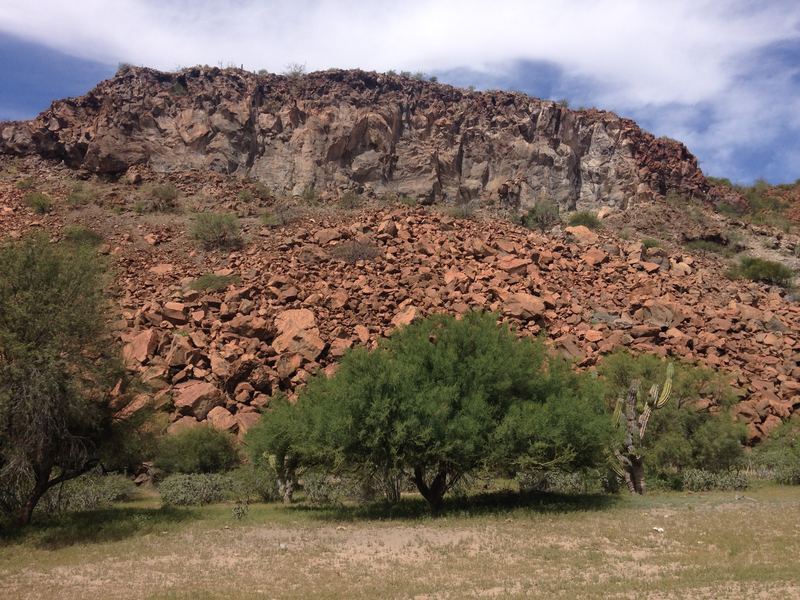
Composer John Luther Adams dives deep and obsessively into experience. He's written a Pulitzer Prize-winning orchestral work of epic, sprawling intensity and shared his fondness for keeping meticulous baseball stats; he found personal solace for decades in the Alaskan tundra and for recent years in the Mexican desert. He's written pieces of a style immediately his own with evocative naturalist titles such as Among Red Mountains, Deep and Distant Thunder, and Sila: The Breath of the World, which was designed to be performed outdoors.
In these nine brief prose poems for New Sounds, titled "Places and Moments," each read by a different employee of New York Public Radio and scored to his music, we see a different side of Adams' creativity, but one, like his music, still potent and full of myriad variations.
Places and Moments by John Luther Adams
"Piedras Pintadas" (from Desert Birds)
The tree is a paloverde azul. It stands about thirty feet tall. But it’s wider than that, its canopy about forty-five feet across.
The main trunk is perhaps twenty inches in diameter. A couple of feet above the ground, it forks into six stout secondary branches. As paloverdes do, it has pruned itself over the years, shedding several lower branches that still lie on the ground around it.
Most of the year it embodies its name. Its smooth bark and delicate leaves encompass a palette of vibrant greens, the cursive lattice of its branches revealing the cloudless blue above.
In April and May, the tree will become a geyser of yellow flowers and sweet perfumes. It will hum, as if it might levitate, carried away by the myriad intoxicated bees that envelop it.
At midday it casts a luxuriant shade against the desert heat. The afternoon wind through its branches is a choir of distant voices singing words that perhaps only the tree itself can understand.
Its canopy is flat at the bottom, extending low toward the ground. Only a young child could stand upright under it, but the sand beneath the tree offers a protected bed for a man or an animal. This is a good place to lie down to sleep, or to die.
Scattered around it are others of its kind, as well as mesquite, a thicket of cholla cactus and two tall, gnarled and knotted cardones.
All around this sparse bosque there are birds —green-tailed towhees, cactus wrens, white-winged doves, California quail, Bewick’s wrens, hooded orioles, phainopepla, Gila woodpeckers, and mockingbirds — chiming, piping, laughing, rasping, scolding, cooing, and trilling in the cool mornings and evenings.
Now, in the heaviness of the afternoon, only the shrill cry of a red-tailed hawk rings out from the cliffs high above.
In a time that no one can remember, an explosion of red boulders rumbled down from those cliffs. The ground still holds the memory of their thunder. Extending from the base of the cliffs to the edge of the bosque, the boulders stand frozen — poised to resume their fall at any moment, crashing on into the brush.
Suddenly, out of the stillness above, an arpeggio of chromatic bell tones descends, like a cascade of sunlit water: the cadenza of a canyon wren.
The shimmering sound reverberates for a long time. The tree stands silent. Listening. (-John Luther Adams)
"Piedras Pintadas" was read by David Satkowski, audio engineer, with music from "Dream of the Canyon Wren" from Canticles of the Holy Wind (recording available from Cantaloupe Music) and mixed by Rosa Gollan. You can hear more from the complete set below.
Places and Moments
1. The Singing of Thrushes
1.1 "The Wood Thrush"
1.2 "On the Glacier"
1.3 "The Hermit Thrush"
2. The One Who Listens
2.1 "The Place Where You Go To Listen"
2.2 "Valley of Fire"
2.3 "River With No Willows"
3. Desert Birds
3.1 "Piedras Pintadas"
3.2 "The Singing Tree"
3.3 "The Hour of the Doves"
